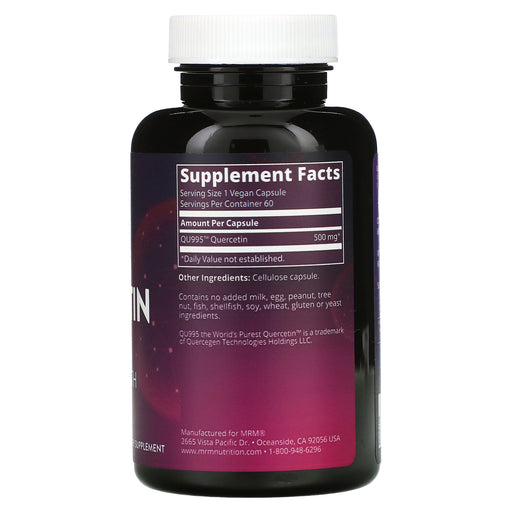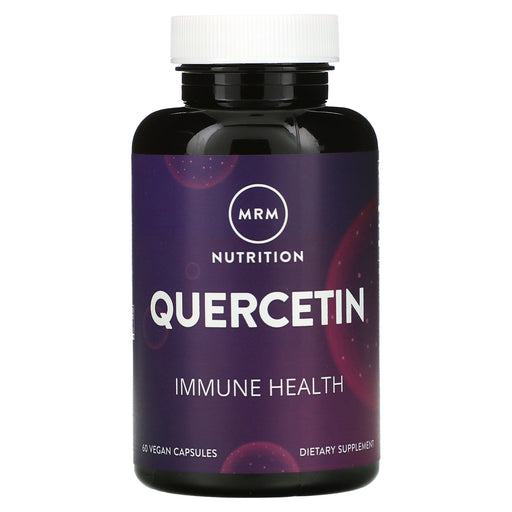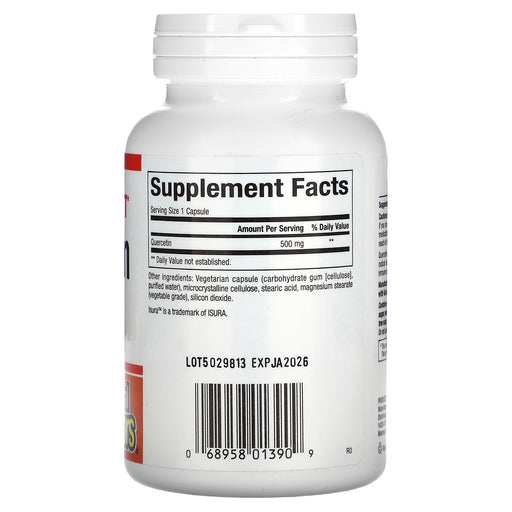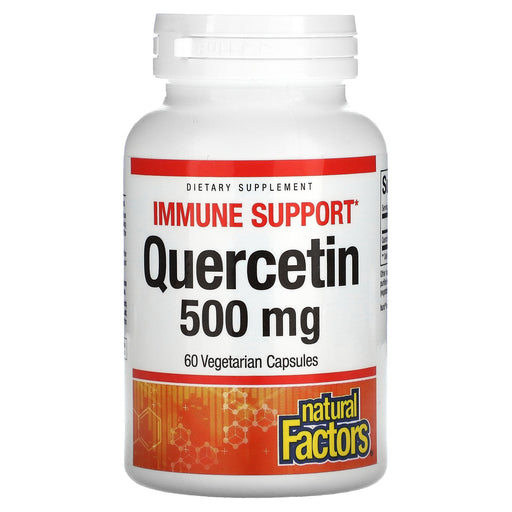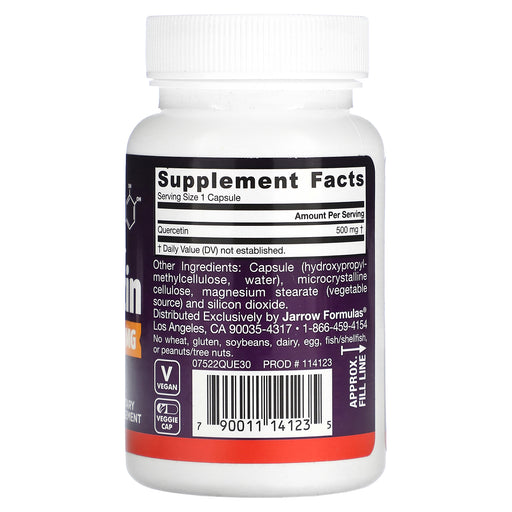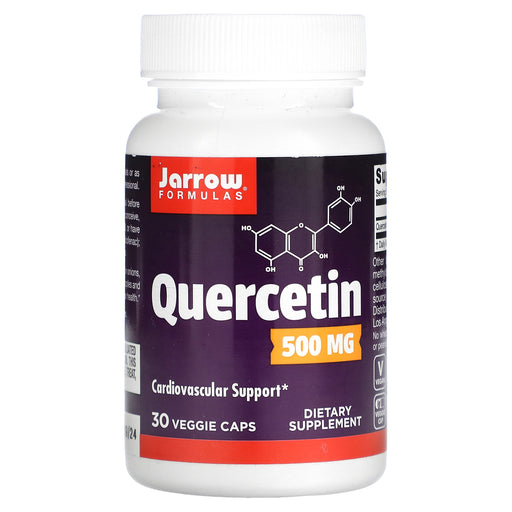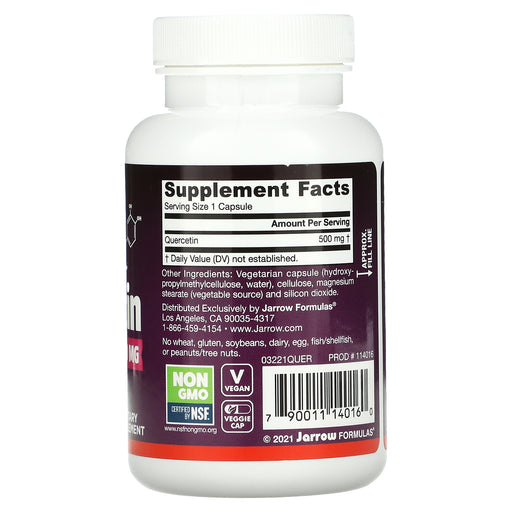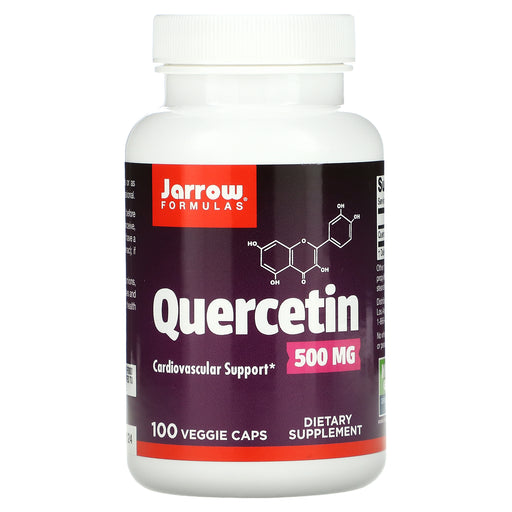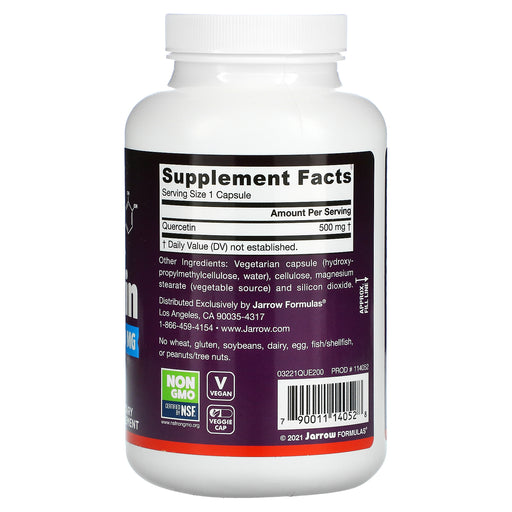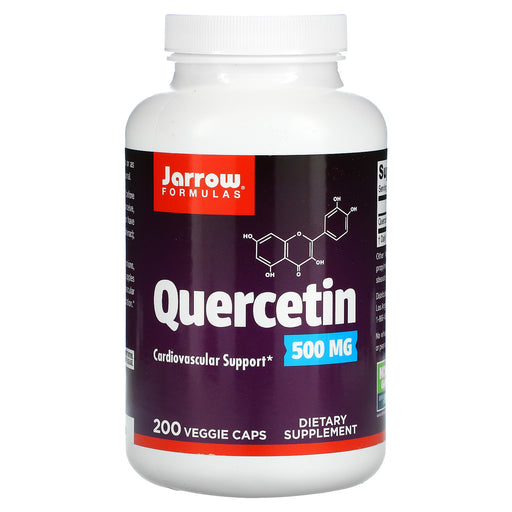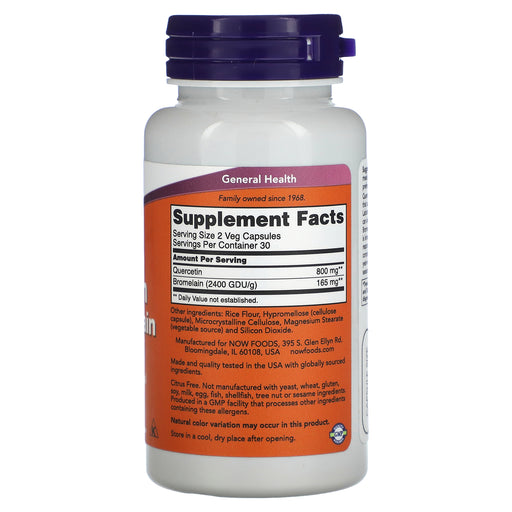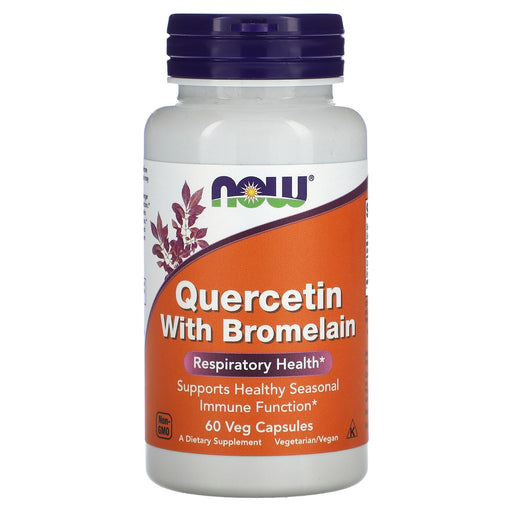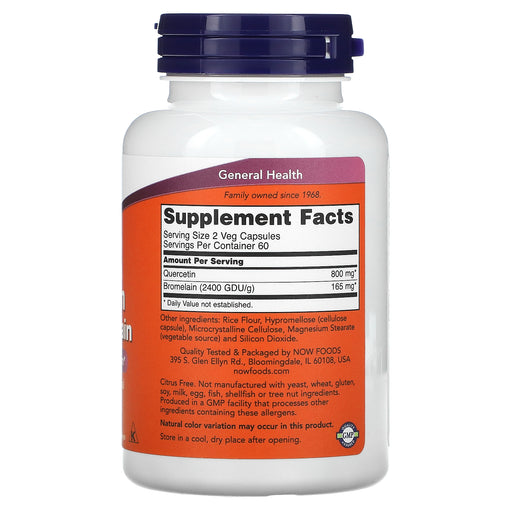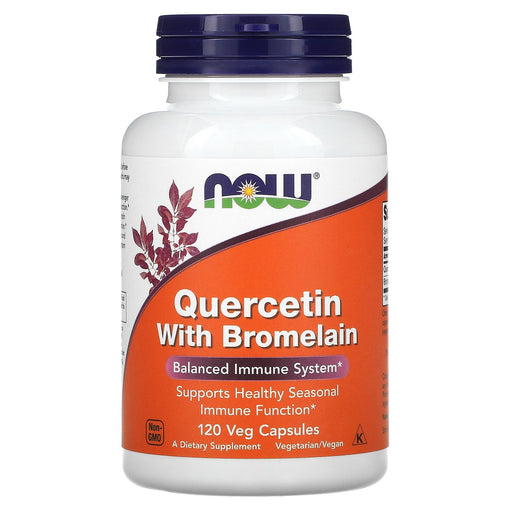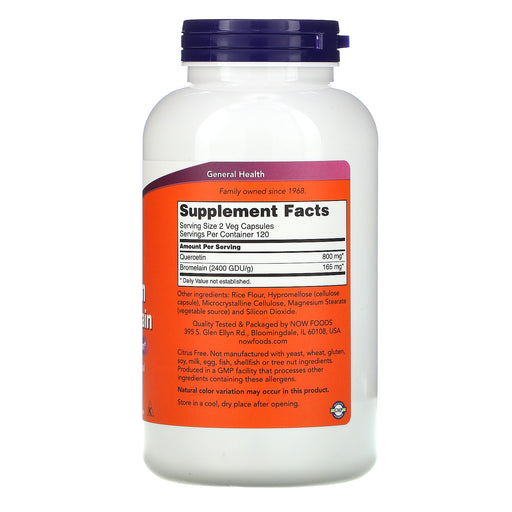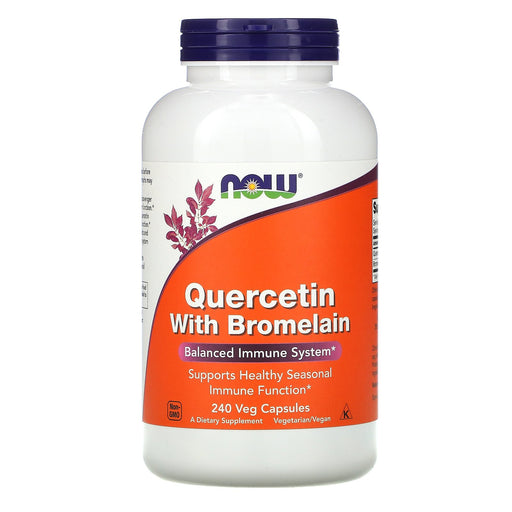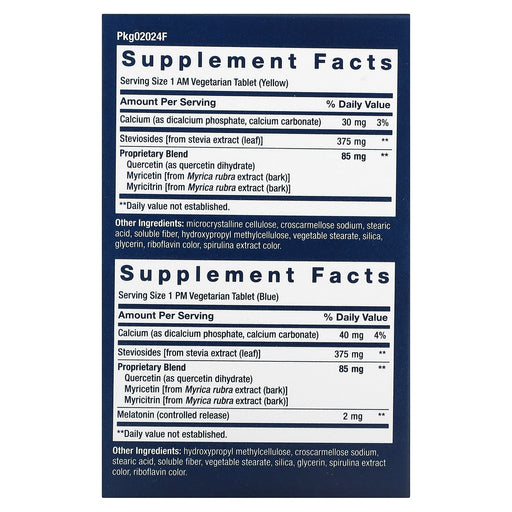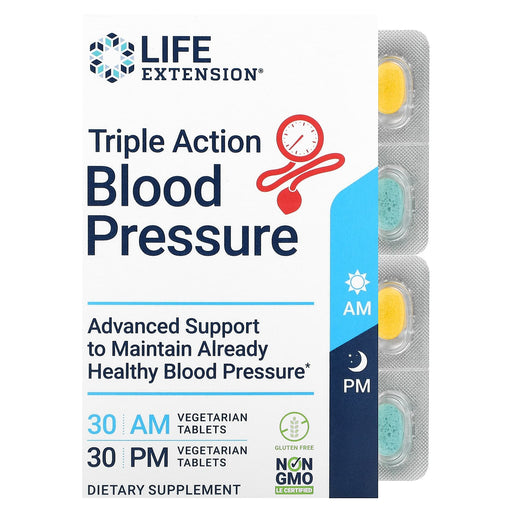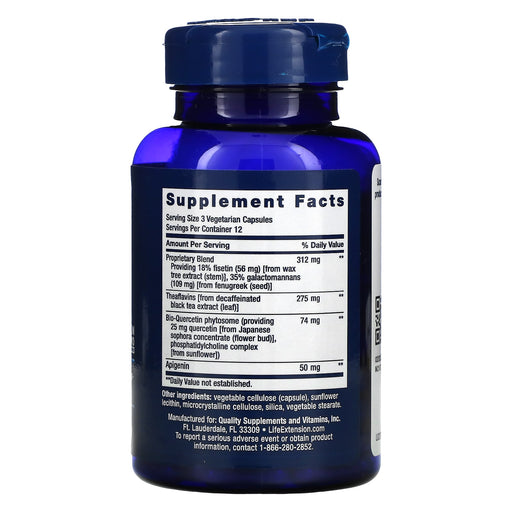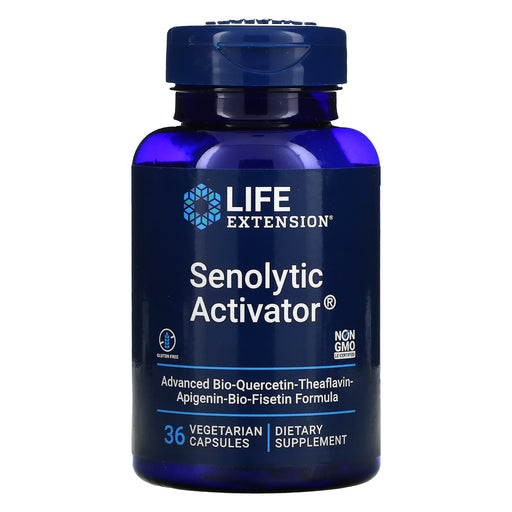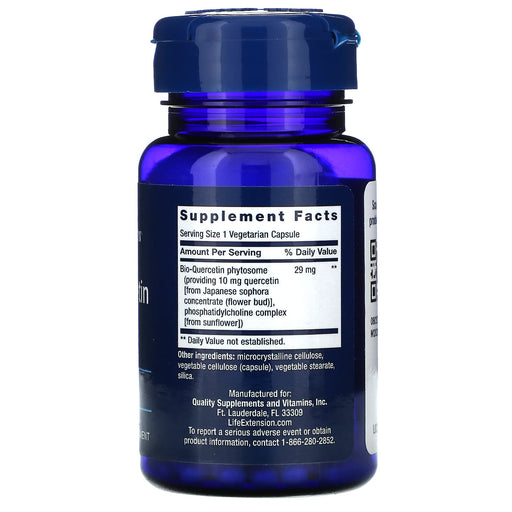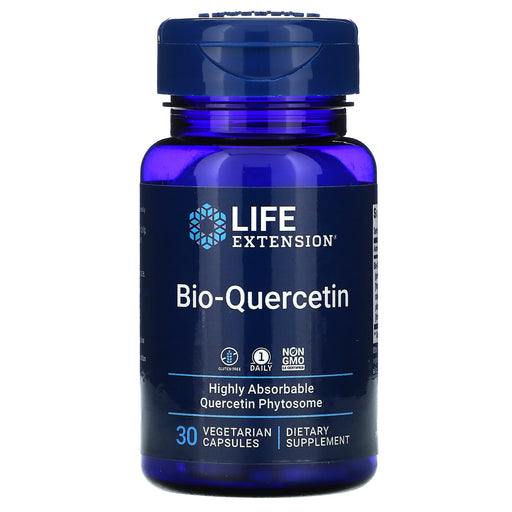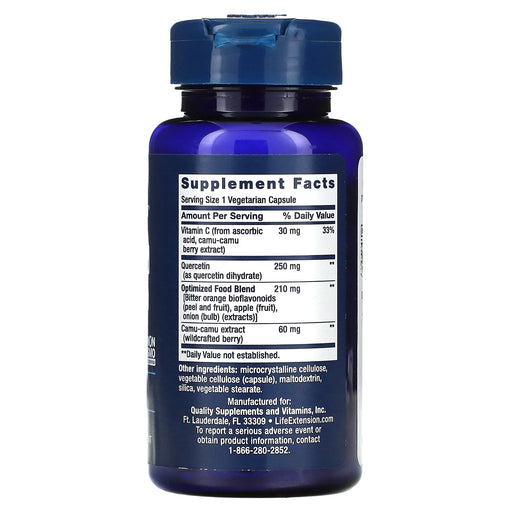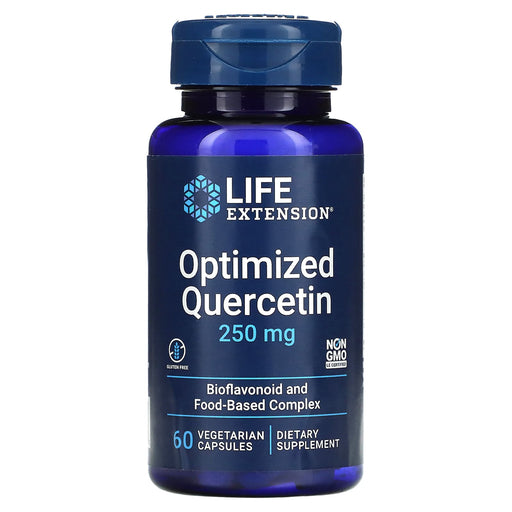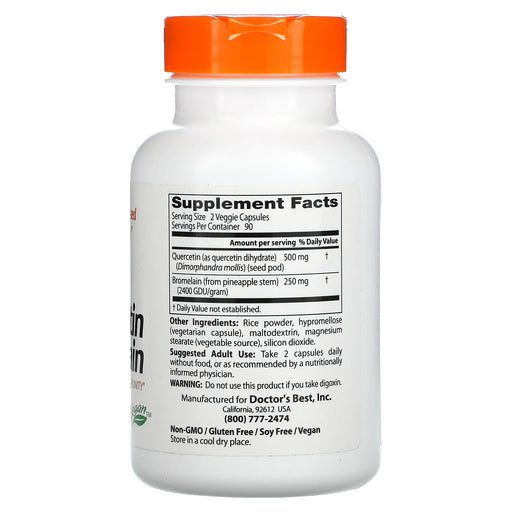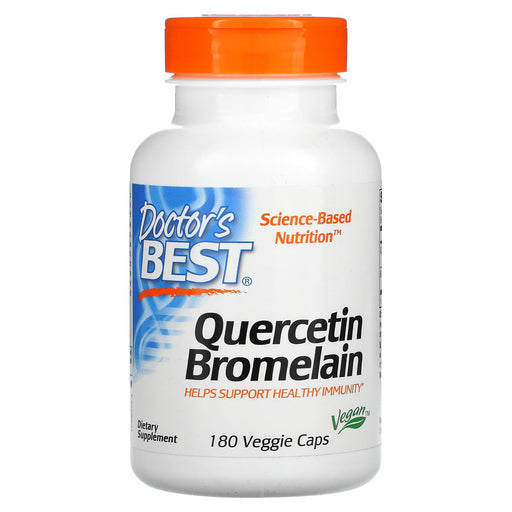
Harness the Power of Quercetin for Immune Support and Overall Health
Quercetin is a potent flavonoid found naturally in many fruits, vegetables, and herbs. It is known for its powerful antioxidant and anti-inflammatory properties. By incorporating quercetin supplements into your wellness routine, you can help support immune function, cellular health, and overall well-being.
What is Quercetin?
Quercetin is a plant pigment that belongs to the flavonoid family, a group of phytochemicals known for their health-promoting properties. It is found in a variety of foods, such as onions, apples, berries, and green tea, as well as in certain medicinal herbs like Ginkgo biloba and St. John's wort.
As an antioxidant, quercetin helps protect cells from damage caused by harmful free radicals, unstable molecules that can contribute to oxidative stress and inflammation. Quercetin also possesses anti-inflammatory properties, helping to modulate the body's inflammatory response and support overall health.
Benefits of Quercetin Supplementation
Incorporating quercetin supplements into your health regimen may offer several potential benefits, including:
- Immune Support: Quercetin has been shown to help support immune function by modulating the production of immune cells and regulating inflammatory pathways. It may also help reduce the severity and duration of respiratory infections, making it a valuable nutrient for overall immune health.
- Antioxidant Protection: As a potent antioxidant, quercetin helps neutralize free radicals and reduce oxidative stress, protecting cells and tissues from damage. This antioxidant activity may help support overall health and longevity.
- Cardiovascular Health: Some studies suggest that quercetin may help support cardiovascular health by promoting healthy blood pressure levels, reducing inflammation, and improving endothelial function (the health of blood vessel lining).
- Allergic Response Modulation: Quercetin has been shown to help modulate the body's response to allergens by reducing the release of histamine and other inflammatory compounds. This action may help alleviate symptoms associated with seasonal allergies and other allergic conditions.
- Exercise Performance and Recovery: Quercetin's antioxidant and anti-inflammatory properties may help support exercise performance and recovery by reducing muscle damage, inflammation, and oxidative stress associated with intense physical activity. Some studies have also suggested that quercetin may work synergistically with other antioxidants, like vitamin C to enhance its benefits for exercise performance and recovery.
Choosing the Best Quercetin Supplement
When selecting a quercetin supplement, consider the following factors to ensure you choose a high-quality product that meets your needs:
- Purity and Potency: Look for supplements that contain pure, high-quality quercetin at clinically effective doses, typically ranging from 500-1000 mg per day.
- Bioavailability: Opt for quercetin supplements that are formulated with bioavailability-enhancing ingredients, such as vitamin C or bromelain, which can help improve the absorption and utilization of quercetin in the body.
- Brand Reputation: Choose supplements from reputable brands with a history of producing high-quality, science-backed products and a commitment to transparency and safety.
- Third-Party Testing: Select supplements that have been third-party tested for purity, potency, and safety, ensuring you receive a high-quality product.
- Synergistic Ingredients: Consider supplements that combine quercetin with other immune-supportive or antioxidant nutrients, such as vitamin C, zinc, or green tea extract, for a more comprehensive approach to health and well-being.
Maximizing the Benefits of Quercetin Supplements
To get the most out of your quercetin supplement, consider the following tips:
- Follow Dosage Instructions: Always adhere to the recommended dosage on the product label, and consult with your healthcare provider before starting any new supplement regimen, especially if you have pre-existing health conditions or are taking medications.
- Pair with a Balanced Diet: While quercetin supplements can provide valuable antioxidant and immune support, they should be used in conjunction with a balanced, nutrient-dense diet rich in fruits, vegetables, and other whole foods.
- Stay Hydrated: Drink plenty of water throughout the day to support optimal cellular function, detoxification, and overall health.
- Store Properly: Keep your quercetin supplement in a cool, dry place, away from direct sunlight and heat, to maintain its potency and freshness.
- Be Patient: The benefits of quercetin supplementation may take time to become noticeable, as its effects on immune function and overall health are gradual and cumulative. Consistent, long-term use is often necessary to experience the full range of benefits.
Unleash the Antioxidant and Immune-Supportive Power of Quercetin
If you're looking for supplement to support immune health, cellular protection, and overall well-being, quercetin supplements may be a valuable addition to your wellness routine. By harnessing the power of this potent flavonoid, you can help your body defend against oxidative stress, inflammation, and other health challenges.
Experience the potential of quercetin supplementation by exploring our curated selection of high-quality quercetin supplements. With a commitment to purity, efficacy, and your individual needs, Health Orchard is here to support you on your journey towards optimal health and vitality.
Frequently Asked Questions about Quercetin
1. What is quercetin supplement good for?
Quercetin is a flavonoid found in various fruits, vegetables, and herbs, and is known for its potent antioxidant and anti-inflammatory properties. As a supplement, quercetin is used to support several aspects of health, including:
- Immune system function: Quercetin may help strengthen the immune system and reduce the risk of infections
- Allergies and inflammation: It may help reduce symptoms of allergies and inflammation by stabilizing mast cells and reducing histamine release
- Cardiovascular health: Quercetin may help improve blood flow, reduce blood pressure, and lower the risk of heart disease
- Exercise performance and recovery: It may help improve endurance, reduce fatigue, and speed up recovery after exercise
2. Is it safe to take quercetin daily?
Yes, it is generally safe to take quercetin supplements daily, as it is a naturally occurring compound found in many foods. The typical recommended dosage for quercetin supplements ranges from 500-1,000 mg per day, divided into two doses. However, it is essential to consult with a healthcare professional before starting any new supplement regimen, especially if you have pre-existing health conditions or are taking medications that may interact with quercetin.
3. What is the best form of quercetin?
The best form of quercetin may depend on individual needs and preferences, but some of the most effective and well-absorbed forms include:
- Quercetin aglycone: The pure form of quercetin without any attached sugar molecules, which may be more easily absorbed by the body
- Quercetin glycosides: Quercetin bound to sugar molecules, such as quercetin rutinoside or quercetin glucoside, which may be more stable and have longer-lasting effects in the body
- Quercetin phytosome: A form of quercetin bound to phospholipids, which may enhance its bioavailability and absorption
4. Can you take vitamin D with quercetin?
Yes, you can take vitamin D with quercetin, as there are no known interactions between these two supplements. In fact, some studies suggest that the combination of quercetin and vitamin D may have synergistic effects on immune system function and inflammation reduction. However, it is always best to consult with a healthcare professional before combining supplements or starting a new regimen.
5. Who should not take quercetin?
While quercetin is generally safe for most people, there are some individuals who should exercise caution or avoid taking this supplement:
- Pregnant or breastfeeding women, due to limited safety data
- People taking certain medications, such as antibiotics, cyclosporine, or warfarin, as quercetin may interact with these drugs
- Individuals with kidney disorders, as high doses of quercetin may worsen kidney function
- Those scheduled for surgery should stop taking quercetin at least 2 weeks before the procedure, as it may increase the risk of bleeding
Always consult with a healthcare professional before starting any new supplement regimen.
6. Is quercetin bad for kidneys?
In normal doses, quercetin is not typically harmful to the kidneys in healthy individuals. However, some studies suggest that high doses of quercetin (e.g., more than 1,000 mg per day) may potentially worsen kidney function in people with pre-existing kidney disorders or increase the risk of kidney stones in susceptible individuals. If you have a history of kidney problems or are concerned about the effects of quercetin on your kidney health, it is best to consult with a healthcare professional before taking this supplement. They can help you weigh the potential benefits and risks and determine an appropriate dosage based on your individual health needs.


